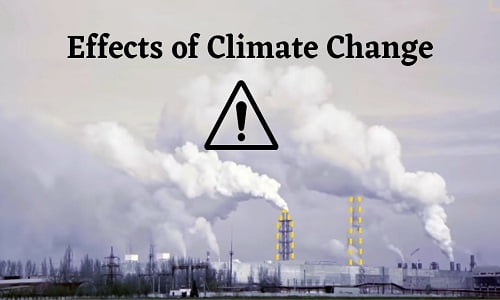Effects of Climate Change
Recently, Lancet Countdown has discussed the effects of climate change on the global environment. Lancet Countdown is a member of 120 leading experts on climate, economy, and public health. They have committed to monitoring climate change, particularly its effect on global health.
According to the Lancet Countdown report 2021, the changing climate has terrible effects on the livelihood of communities worldwide. It may also affect physical and mental health and contribute to the spread of infectious diseases.
According to the IPCC, human activities are primarily responsible for changing the climate. These human activities have crossed the limit, thus causing long-lasting effects.
In one report, extreme weather also disturbs the productivity of various food sectors, including agriculture, fishery, and forestry sectors.
Reasons behind climate change:
According to the Lancet Countdown report 2021, nowadays, the world is 1.2°C warmer than in the preindustrial period (1850-1900). Greenhouse gases (carbon dioxide and methane) are the main reasons behind climate change.
These gases don’t allow heat to come back to the sun, thus increasing the earth’s temperature. Sun radiations that come from the sun don’t reflect, accumulating in the atmosphere.
These gases act like a blanket, trapping heat inside the earth’s atmosphere and increasing the temperature gradually. This rise in temperature cause flood in low-lying areas.

Effects of Climate Change on human health:
According to the Karolinska Institute of Sweden, most people are suffering from Hyponatremia. It is a condition having low sodium levels in the body because of high outdoor temperature.
Similarly, continuous extreme heat exposure can cause neurological diseases and kidney diseases. Outdoor workers are more susceptible to such types of illnesses as compared to indoor workers.
During COVID-19 pandemics, the effects of climate change were more dangerous. An increase in temperature causes to increase in the growth of various water-borne, food-borne, and airborne pathogens.
Vectors carrying pathogens now move to different regions than the ones they initially inhabited. For example, climate change influences the period of pathogen-carrying vectors. Because of temperature fluctuations, the incubation period of several viruses may also increase.
How to cope with climate change?
Government should take serious actions to overcome this issue. Countries around the world should follow low carbon economy recovery pathways. They should implement such policies that reduce discrimination and improve human health.
By: Tayyaba Zareen
